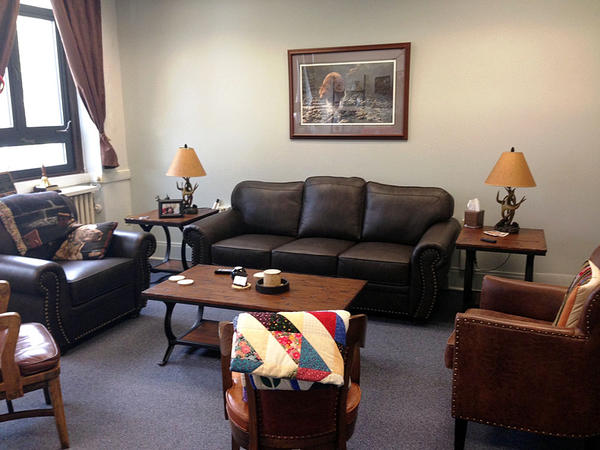
Lawmakers Dip Into Leftover Campaign Funds For Travel, Furniture, Clothes
Listen
When there is money left over from political campaigns, what do elected officials do with it? Records show that since Election Day more than a dozen Washington state lawmakers have dipped into leftover campaign cash for pay for everything from cellphones to meals out to travel.
And this “surplus campaign spending” gets little scrutiny.
“There might be a perfectly legitimate public office related activity going on,” Evelyn Fielding Lopez said. Until recently she was director of Washington’s Public Disclosure Commission — the state’s campaign finance watchdog.
‘You are going to need to document that’
Lopez said the rule with surplus campaign funds is they can be used to cover non-reimbursed public office-related expenses. But Lopez added that elected officials have to be able show it was appropriate to use surplus funds “You are going to need to document that, you’re going to need to keep your records and have to be ready to explain, should you be questioned, what you used the funds for and how it was connected with your public office,” she said.
In March, the Public Disclosure Commission issued a written warning to Democratic state Rep. Joe Fitzgibbon and required him to reimburse his surplus funds account for a portion of the cost of a computer he purchased and used for “non-permitted campaign and personal activity.”
While lawmakers from both political parties engage in surplus spending, our analysis showed more Republicans using these funds to cover expenses since Election Day 2016.
In January, Republican state Sen. Doug Ericksen attended President Donald Trump’s inauguration. Three days after the inauguration — on January 23 — Ericksen was scheduled to begin a temporary job working for the president at the Environmental Protection Agency. That same day Ericksen paid a $2,000 bill at the Embassy Suites Hotel in Washington, D.C., with money left over from his state legislative campaign.
In recent months, Ericksen has also used surplus campaign funds to pay the tab at pubs and restaurants in D.C. and to buy airline tickets.
Ericksen declined to answer questions about his surplus spending. But in an email he said, “All surplus fund expenditures are related to conducting my duties as an elected official.” Ericksen later added that the activities included meeting with elected officials, but he did not provide details.
‘I want to be in Spokane on the weekends’
During the legislative session, state Rep. Marcus Riccelli, a Democrat from Spokane, used surplus funds to fly home to see his wife and kids.
“I go back almost every weekend to be with my family,” he said. Riccelli said he flew more this year because of conditions on the mountain passes.
“And I want to be in Spokane, quite frankly, on the weekends,” he said. “It’s also a chance for me to meet with constituents even if it’s not formally.”
The Washington House does pay for a couple of trips home for lawmakers during the session. In addition, Washington lawmakers are eligible for $7,800 a year in business expenses plus $120 a day in per diem when they’re in session.
Sprucing up the office
Other surplus spenders include Republican state Sen. Ann Rivers. Since January she’s spent $8,000 on office furnishings and supplies to cozy-up her legislative office in Olympia. Rivers said she didn’t want taxpayers to pay for that, but felt comfortable using leftover campaign contributions.
“The people who gave me that money would want me to know that I was doing the very best to be the best legislator that I could creating a warm and welcoming environment where people can come in my office and problem solve,” Rivers said.
Another Republican state Senator, Hans Zeiger, spent more than $10,000 on furniture for his legislative office. Zeiger said he inherited “shabby” office furniture when he moved from the House to the Senate this year, so he decided to use surplus funds to buy better furniture from a store in his district.
“I’m pretty happy with how it turned out,” Zeiger said.”
It’s not just the lawmakers’ offices that are getting dressed up.
Sen. Kirk Pearson, also a Republican, used $1,500 in surplus campaign funds to buy suits and ties, pay for dry cleaning and alterations and have his shoes resoled.
“I’ve used it on clothing and also on a computer for the campaign and stuff and also charitable giving for local food banks and everything,” Pearson said. “But they’re allowable uses.” In the Washington House, Republican state Rep. Dave Hayes also reported buying clothes and shoes for the legislative session.
Another Republican state Rep., Brandon Vick, used surplus funds to cover mileage and a hotel stay in Olympia so his wife and daughters could attend family day at the Capitol. Vick also paid $252 for framed art for his office.
“I try to use [surplus funds] as sparingly as possible to pay for things that you incur in the course of being a legislator that you might not incur in your daily life,” Vick said.
Lopez noted that items lawmakers buy with surplus funds — furniture, clothes, iPhones — belong to their campaigns not to them.
Meals, lobbyists and new ethics rules
Since Election Day, several Washington lawmakers have also used surplus funds to purchase meals and food. They include Republican state Rep. Richard DeBolt who, records show, bought more than 30 restaurant meals. DeBolt said some of those were “payback meals” for volunteers who helped out on his campaign. Others were meals out with lobbyists where DeBolt paid for his portion of the meal using surplus funds, instead of letting the lobbyist pick up the tab.
DeBolt said “it’s just not worth it” to let a lobbyist pay the bill given the scrutiny that has attracted in the past. Following reporting on lobbyist-paid meals in 2013, the state’s Legislative Ethics Board adopted a rule that says Washington lawmakers can accept no more than a dozen free meals from lobbyists a year.
And then there’s a whole other category of surplus spending: charitable contributions, which are explicitly allowed. Most are small dollar, but one in particular stands out: In March, state Rep. Eric Pettigrew, a Seattle Democrat, wrote a $13,000 check out of his surplus account to the Filipino Community of Seattle — a nonprofit.
Pettigrew said he was motivated to write that check because of how President Trump’s policies might affect immigrants in his legislative district.
“I thought it was just really important that I look at those organizations that are working with folks who are English as a second language and first generation families given the environment we stepped into right off the bat in January,” he said.
Other lawmakers used surplus dollars to contribute to food banks, churches, arts and culture organizations and even public radio.
This story was reported in collaboration with The Seattle Times.
9(MDAyOTk4OTc0MDEyNzcxNDIzMTZjM2E3Zg004))
Related Stories:

Head Start serves 15,000 kids in Washington. And its regional office just closed.
The regional Head Start office closed this week, making some advocates nervous about the program’s future. (Credit: Barnaby Wasson / Flickr Creative Commons) Listen (Runtime 1:00) Read The regional Head

Astronauta de la NASA José Hernández inspira a estudiantes durante visita a Tri-Cities
EL astronauta de la NASA José Hernández visitó el este de Washington y compartió su historia de resiliencia y determinación con estudiantes locales.

Washington, Idaho rank high for public health emergency preparedness
Both states saw steady or increased funding for public health, but Idaho still among lowest for vaccinations.












